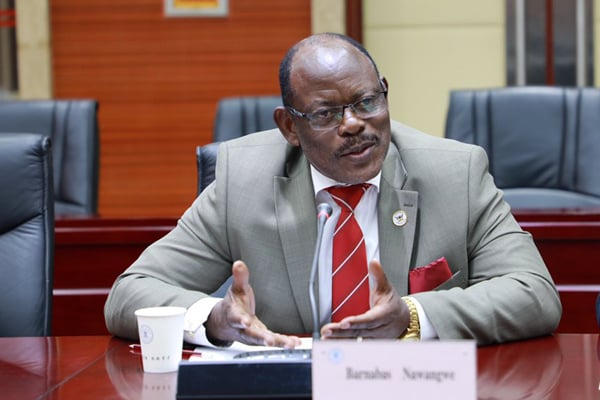
The Uganda Law Society (ULS) has raised concerns over a letter from Makerere University Vice Chancellor Barnabas Nawangwe, which calls for an investigation into a law exam question related to recent political events. ULS President Bernard Oundo emphasized that academic freedom is a fundamental right protected by international treaties and Ugandan law, including Article 29(1)(b) of the Constitution.
In a statement, Oundo stressed the importance of academic freedom, which includes the freedom of opinion, expression, association, and assembly. He referenced court rulings, such as David Kitara Lagoro v Gulu University, which affirm that academic freedom allows teachers and students to teach, study, and pursue knowledge without unwarranted interference.
Oundo explained that the exam question in question was a hypothetical scenario designed to foster critical thinking and the application of knowledge to real-life situations.
"Academic freedom ensures the unrestricted pursuit of knowledge and the ability of both teachers and students to express themselves without undue influence or restrictions imposed by laws, institutional regulations, or external pressures," he said.
He added that such exam questions are not unprecedented and have been used in previous law examinations. Oundo asserted that the intimidation implied by university authorities threatens academic freedom and has no place in higher education institutions.
ULS called on all individuals and authorities to respect academic freedom and the broader right to freedom of thought, conscience, and belief guaranteed under the Constitution. Oundo assured that the ULS would closely monitor the situation to ensure that due process is followed and the rights of individuals are protected.
Prof. Nawangwe ordered an investigation into the conduct of exams for first-year law students during the second semester. Dr. Ronald Naluwairo, the acting principal of the School of Law, acknowledged concerns but defended the administration of the examination, which pertained to the course unit L1210 - Principles of Constitutional Law II - and was conducted on May 11.
In response to the controversy, Speaker of Parliament Anita Among urged Makerere University to uphold students' right to learn and emphasized the importance of respecting the ideals of a free society by avoiding censorship of exam content. Among stated on the X platform that freedom of expression, including academic freedom, must be guaranteed and treated as sacred.
Among acknowledged reports of disciplinary actions against lecturers at Makerere University School of Law concerning an exam question that referenced her and a parliamentary session. She emphasized that Parliament welcomes public scrutiny, which is essential for a robust and representative legislature.
The controversial exam challenged first-year law students with current affairs using a satirical essay depicting Speaker Anita Among confronting recent sanctions imposed by the UK government. The essay listed clauses from a fictional bill, including a ban on unfavorable comments about the Speaker of Parliament and empowering the speaker to recommend individuals for prosecution to the Director of Public Prosecutions (DPP).
Encouraging students to provide concise and well-thought-out answers, the examiner further parodied the speaker's exchange with the Leader of the Opposition, who had raised concerns about the draconian bill.

















